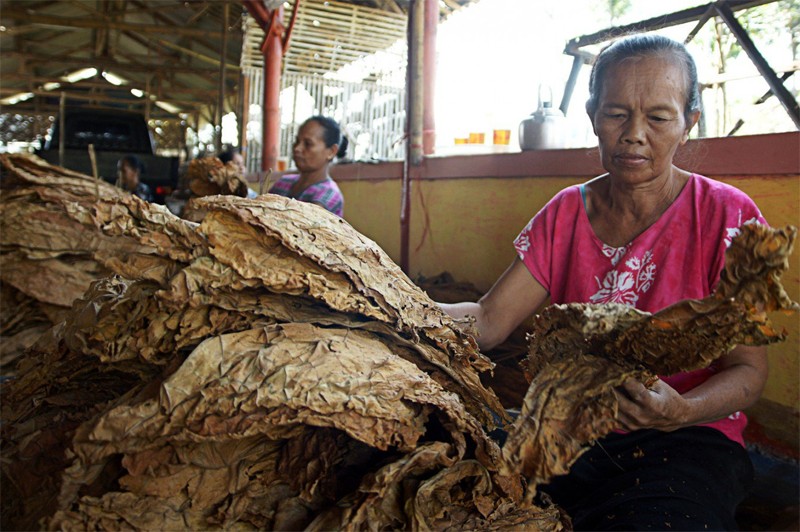Popular Reads
Top Results
Can't find what you're looking for?
View all search resultsPopular Reads
Top Results
Can't find what you're looking for?
View all search resultsCourt puts end to tobacco expansion plan
Change text size
Gift Premium Articles
to Anyone
T
he Supreme Court has annulled a government road map designed to boost national tobacco production, ruling that the plan is incompatible with child protection and public health, among other concerns.
A 2015 Industry Ministry regulation on the tobacco road map, which targeted an output rise to 524.2 billion cigarettes by 2020, was appealed earlier this year by five antitobacco activists with the assistance of lawyers from the Solidarity of Public Advocates for Tobacco Control (SAPTA), led by prominent lawyer Todung Mulya Lubis.
The court ruled against the road map, arguing it violated five higher-level regulations, namely the laws on health (No. 36/2009), human rights (No. 39/1999), international convention on economic, social and cultural rights (No. 11/2005), child protection (No. 23/2002) and excise (No. 11/1995).
“Massive cigarette production will support massive consumption. Massive consumption will lead to massive health damage,” said SAPTA lawyer Julius Ibrani.
Cigarettes are widely consumed in Indonesia, which has the highest prevalence of child smokers in the world and where 67.4 percent of males above 15 years of age smoke. National production has grown to 341 billion cigarettes as of 2013, up 55 percent from 2006.
The Industry Ministry’s tobacco road map eyes tobacco production to grow by 5 percent to 7.4 percent per year until it reaches 524.2 billion cigarettes in 2020, or 1,900 sticks per capita of Indonesia’s projected 270 million population.
“The Supreme Court verdict has automatically annulled the road map. The verdict is final and legally binding, so there is no way for any party or anyone to challenge it,” said SAPTA lawyer Tubagus Haryo.
The Industry Ministry, which issued the road map to develop the tobacco industry and protect tobacco farmers, acknowledged the verdict and said it would review its policy accordingly.
“We need to find solutions on how to help the tobacco farmers if the crop price drops due to the slowing industry, not just ban it. It’s also the task of the Agriculture Ministry to assist them in planting other commodities should they need to change occupation,” said the ministry’s director for beverages, tobacco and refreshments, Willem P. Riwu.
Farmers, on the other hand, are finding it difficult to use their land for purposes other than growing tobacco, which they say gives them more income. Planting corn yields Rp 12 million (US$900) of profit per hectare per harvest, while tobacco plants earn them Rp 22 million, according to the Tobacco Farmers Association’s Jember chapter.
“To switch plants is also not easy, as we’ve been doing this for years,” said the head of the farmers group, Abdurrachman.
Bogor Institute of Agriculture (IPB) economist Iman Sugema said the government needed to devise a comprehensive plan on tobacco to protect both public health and the industry’s development.
“The government also needs to be ready to provide replacement jobs for the laborers, farmers and retailers living from tobacco. The policy needs to be comprehensive and not support the interests of only one side,” Iman added.
Around 6 million people work in the tobacco industry, including 2.3 million tobacco farmers, 1.5 million clove farmers, 400,000 factory workers, 600,000 related workers and 1 million sellers, based on University of Indonesia (UI) data from 2013.
Tobacco, meanwhile, is the biggest contributor to state income from excise with an estimated Rp 132 trillion this year.










